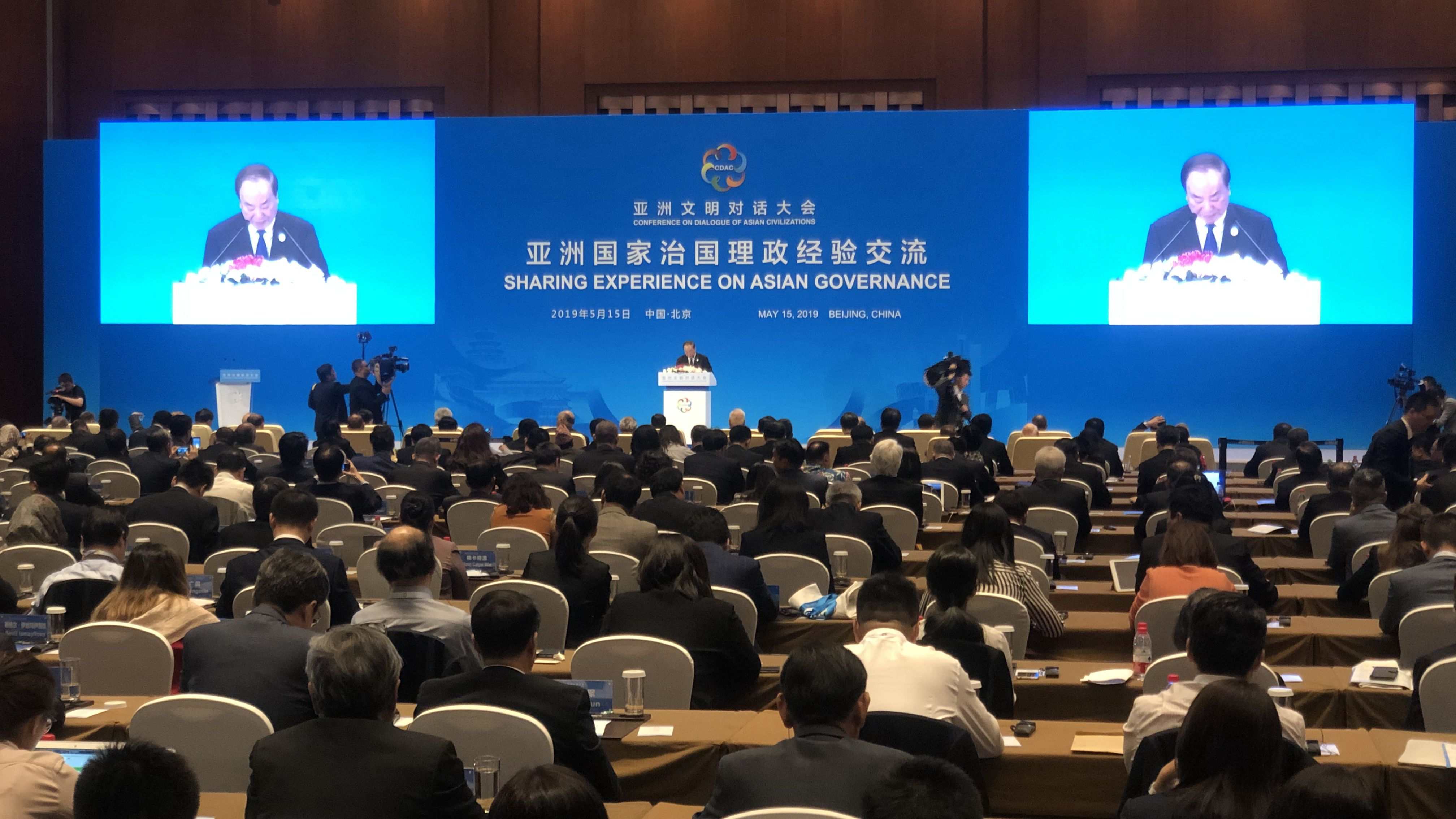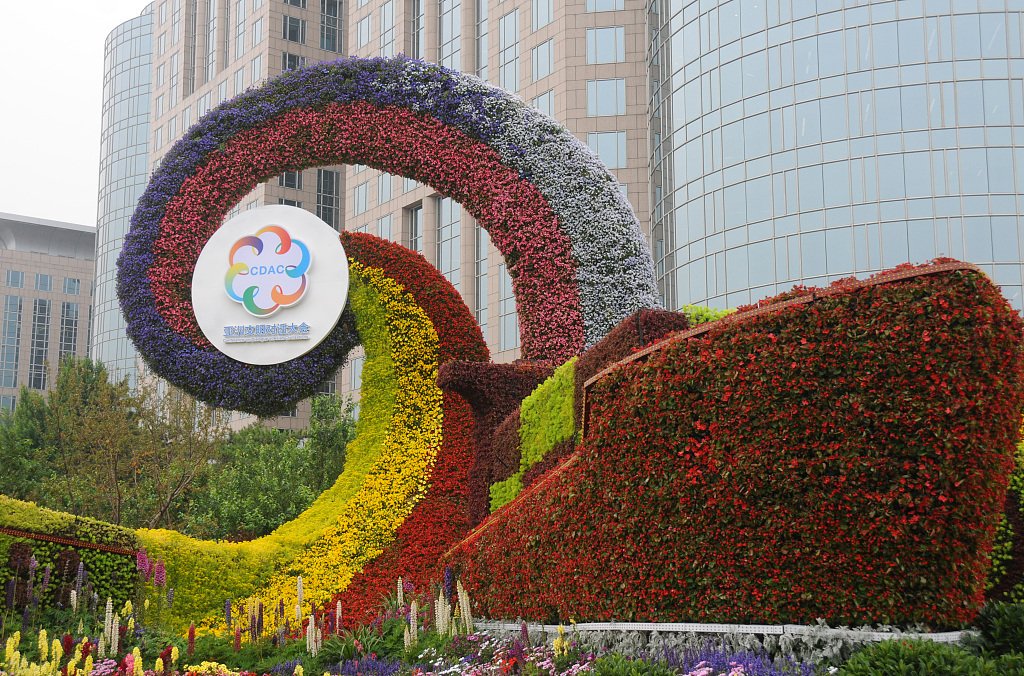
Domestic
22:34, 15-May-2019
China's understanding of governance has deepened over its 70-year development
CGTN

Huang Kunming, head of the Publicity Department of the Communist Party of China (CPC) Central Committee, has emphasized the necessity of mutual learning and exchange between civilizations, and the pursuit of a community with a shared future for Asia, as well as the sharing of governing experience among Asian countries.
He made the remarks at a sub-forum themed "Sharing Experience on Asian Governance" on Wednesday.
Huang reviewed Chinese President Xi Jinping's keynote speech at the opening ceremony of the conference and reaffirmed the vision and proposals put forward by Xi on accelerating the building of a peaceful, prosperous and open Asia, as well as the mutual learning and exchanges between Asian civilizations.
Huang pointed out that historic achievements and reforms have been made since the establishment of the People's Republic of China 70 years ago.
He credited those successes to China's persistence in walking its own path, centering on the needs of the people, relying on reforms as the driving force, boosting innovation throughout society, and seeking development through openness.
Huang confirmed that China's understanding of governance has been greatly reinforced by following this course.
Accommodating 300 guests from 50 nations and international organizations, the sub-forum is one of the six parallel forums being held as part of the ongoing Conference on Dialogue of Asian Civilizations, which runs from May 15 to 22.

A floral display for the Conference on Dialogue of Asian Civilizations at the Chang'an Street, Beijing, China, May 14, 2019. /VCG Photo
A floral display for the Conference on Dialogue of Asian Civilizations at the Chang'an Street, Beijing, China, May 14, 2019. /VCG Photo
Also at the sub-forum, two reports by China Foreign Language Publishing Administration were released.
One of the reports mainly focuses on the extent of involvement of Asian countries in global governance.
It reached the conclusion that some Asian countries, such as China, Japan and India, have become the backbone of global governance. It also disclosed that a strong potential exists for Asian countries to further participate in global governance based on its unique cultural advantage of advocating inclusiveness and win-win cooperation.
In the meantime, the survey also points out that Asian countries have yet to increase their ability to shape international mechanisms and have more of a say in global governance and decision making.
The other report surveyed people from 12 Asian nations including China, South Korea, Thailand, Pakistan and Saudi Arabia, asking about their perception of Asian civilizations in relation to the Belt and Road Initiative (BRI), the community with a shared future for Asia and other regional issues.
The survey found that the majority of people interviewed greatly recognize the relevance of historic experience and cultural legacies in Asian governance.
They also agree that the BRI will bring more development opportunities to their own countries.
Over half of those interviewed relate to the idea of the Asian dream and believe that seeking better development is the most common wish in the dreams of different Asian countries.
(Top image: Huang Kunming, Head of the Publicity Department of the CPC Central Committee speaks at the sub-forum on "Sharing Experience on Asian Governance" in Beijing, China, May 15, 2019. /CGTN Photo)

SITEMAP
Copyright © 2018 CGTN. Beijing ICP prepared NO.16065310-3
Copyright © 2018 CGTN. Beijing ICP prepared NO.16065310-3